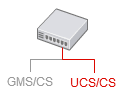Profile Extensions

|
This page provides guidelines for managing Profile Extensions in UCS. |
Contents
About Profile Extensions
Profile extensions are stored in the UCS database and are not JSON values as service extensions. Their management is similar to former extension management in Context Services. You must define database schemas before you can use them in your application.
Profile extensions are additional information which extend the standard contents of resources such as Customer Profile. A Extension is a record-a list of attributes-or an array of records, associated with a resource ID.
- You can define as many extension types as you need by creating an Extension Schema for each of them.
- Extension schema are created through Context Services (see List of Schema Operations), not through the Configuration Layer (Configuration Manager).
Extension records can be either:
- "single-valued": The extension contains a single record across the resource (for instance, LastName, FirstName, identifiers, etc.)
- "multi-valued": The extension can contain several values (for instance, phone numbers, e-mail addresses, etc.)
Extensions are provided at the same time and at the same level than the attributes of the resource. For instance, the following output presents a profile containing the attributes FirstName, LastName, DOB<ref>DOB: Date Of Birth</ref> and one multi-valued extension EmailAddress:
{
"FirstName": "Bruce",
"LastName": "Banner",
"DOB": "1962-05-10",
"EmailAddress": [
"bruce.banner@marvelous.com",
"b.banner@hulk.dom"
]
}<references />
Unique Attributes
In the case of multi-valued extensions, the attributes which are part of the 'unique' list (specified in the Extension Schema) are used to identify records. The combination of these attributes' values must be unique across the related resource, and this enables UCS to identify a given record in the given extension. For example, consider a 'Bill' extension which includes the attribute bill_id. To ensure that a given service does not have two 'Bill' extensions with the same bill_id, set the following unique array in the extension schema:
unique = ["bill_id"]
The attributes of the unique list are mandatory at the extension record's creation. You need to provide values for the 'unique' attributes:
- At the creation of an extension record.
- In operations which update or delete a specific record, such as Update Record In Profile Extension or Delete Record From Profile Extension.
Limitations
- Once created, you cannot update the schema.
- When you are dealing with extensions or extension schema, make sure that you do not use one of the
Unauthorized Strings as an attribute name or value.
Managing Extension Schema
Before you can start using extensions, you must create their schema.
You can create schema with the following operations:
Then, you can retrieve extension schema.
Example: Retrieving the schema for profile extensions:
GET /metadata/profiles/extensions
Result
200 OK
[
{
"name":"Phone",
"type":"multi-valued",
"attributes": [
{"name":"PhoneType","type":"integer","default":0,"mandatory":"true"},
{"name":"prefix","type":"string","length":"3","default":"555",},
{"name":"PhoneNumber","type":"integer","length":15,"mandatory":"true"},
{"name":"description","type":"string","length":32,"mandatory":"true"},
{"name":"start_availabilty","type":"datetime"},
{"name":"end_availabilty","type":"datetime", "mandatory":"false"}
]
},
{
"name":"Address",
"type":"single-valued",
"attributes": [
{"name":"AddressType","type":"integer","default":0},
{"name":"Address","type":"string","length":256},
{"name":"City","type":"string","length":32},
{"name":"County","type":"string","length":32},
{"name":"PostCode","type":"string", "length":10},
{"name":"Country","type":"string","length":32}
]
} ]
Managing Extensions
Adding Extensions to a given Resource
You can add extensions when managing the resources with related operations which authorize the <extension n> attribute in the operation's body. In that case, if a former value of the extension exists for the given resource, this former extension value is replaced with the new extension value specified in the body.
Let's consider the following multi-valued extension record named 'Satisfaction'. The unique field which identifies records is "place" (the name of the proposed place for the booking.
Example: Records for a 'Satisfaction' extension
PUT /profiles/00027a52JCGY000M
{
"FirstName": "Bruce",
"LastName": "Banner",
"DOB": "1962-05-10",
"EmailAddress": [
"bruce.banner@marvelous.com",
"b.banner@hulk.dom"
],
"Address": { "Type":1, "Address":"21 JumpStreet", "City":"Hollywood",
"County":"Santa Barbara", "PostCode":"555", "Country":"United States" }
}
POST /profiles/00027a52JCGY000M/extensions
{
"customer_id":"00027a52JCGY000M",
"Satisfaction": [
{
"rating":2,
"pertinence":8,
"usefull":true,
"place":"Terranova mexico resort"
},
{
"rating":8,
"pertinence":4,
"usefull":false,
"place":"Fancy resort Paris"
}
]
Example: Operation which updates the 'Satisfaction' extension
POST /profiles/00027a52JCGY000M/extensions
{
"customer_id":"00027a52JCGY000M",
"Feedback":
{
"FeedbackType":"survey",
"rating":7,
"notes":"warm welcome at frontdesk, thanks for the nice trip"
},
"Satisfaction": [
{
"rating":2,
"pertinence":6,
"usefull":true,
"place":"Marina Porto Vecchio"
}
]
}As a result, the previous records 'Fancy resort Paris ' and 'Terranova mexico resort ' are lost. In this case, to add a new record to the extension, you must specify the whole extension content. For instance, note the following:
Example: Operation which updates the 'Satisfaction' extension without losing records
POST /profiles/00027a52JCGY000M/extensions
{
"customer_id":"00027a52JCGY000M",
"Feedback":
{
"FeedbackType":"survey",
"rating":7,
"notes":"warm welcome at frontdesk, thanks for the nice trip"
},
"Satisfaction": [
{
"rating":2,
"pertinence":6,
"usefull":true,
"place":"Marina Porto Vecchio"
},
{
"rating":2,
"pertinence":8,
"usefull":true,
"place":"Terranova mexico resort"
},
{
"rating":8,
"pertinence":4,
"usefull":false,
"place":"Fancy resort Paris"
}]
}Retrieving Extensions
GET operations which enable to retrieve resources include the "extensions" parameter to specify a list of extensions to retrieve. By default, extensions are not returned. The following list is not exhaustive:
Deleting an Extension
To delete the extension of a given resource, use the related Update XXX Extension operation with no attributes in the operation's body.
PUT POST /profiles/00027a52JCGY000M/extensions []
As explained in Role-Based Access Control, you need update privileges to clear the extension, as follows:
- Clear Profile Extension—UCS.Customer.updateProfileExtension
